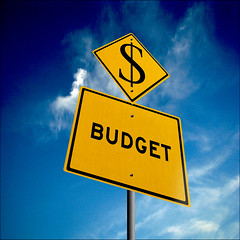The Role of the Family Budget
Everyone is pinching pennies these days, unless you are Bill Gates or own oil in the Middle East. A family with children can expect expenses for school, activities, medical costs, college, and more. How do you make ends meet in this day and age? How do you pay all the bills, make sure “little Johnny” can play soccer and football, and you are putting away money for emergencies and college? One way is to live by a budget.
Maximize Income
Through mapping out your budget, you will detail the income that is brought into your house hold. Some households share all the income and pay the expenses with the collected income. While others separate out bills, groceries and expenses by who owes what. A household budget lets you define what income is applied to rent, bills, food, and more. This will allow you to use the income efficiently. If your household has a variable income from a small business or other sources, then you can plan for shortfalls or excess.
Minimize Expenditure
The budget is a great way to see where your money is going after you pay the monthly bills, you get to see where you leftover income is going. Do you eat out a lot? Is your hubby going to his favorite game store and buying all the new dungeons and dragons books? Are you addicted to buying new clothes? Do you kids need a new toy every month? Are you spending excess money at the grocery store? And the list goes on and on. By recording each receipt and cost, you will be able to track all of your expenditures and understand how your money is spent.
Reveals Waste
After reviewing where your expenditures are going, you can determine what is important to you and what might qualify as waste. If you are spending $100 a month on fast food and you want to cut down on the McDonald’s. Then you can identify this cost and make a plan to eliminate the excess cost. This identification of costs that are wasting your money allows to you set aside more money for savings or other expenditures. Incidental cost can add up if you are not aware of where your money is going.
Provides a Roadmap
With a proper budget, the identification of income, costs, expenditures, waste, and savings allows you to visually see the roadmap of your family budget. This is the tool that can set you on the right track for savings that will help you plan for crisis situations, college educations, and big ticket items that you may want to buy. One important savings plan is a medical savings account that can assist in paying for medical costs that may come up in a lifetime. Also extra’s such as life, disability, and supplemental medical insurance will protect your family. Mapping out a plan to pay for new car or renovations in your home is smarter than incurring new debt. A budget may also allow you to pay off your debt and live a lifestyle free from credit cards, student loans, or even your mortgage.
Start new Habits
After all your work on the budget, you may find yourself identifying bad habits you want to eliminate, such as that expensive morning coffee, and adding new habits, such as saving ahead for a big vacation for the family. One family created a savings account for their children to earn a trip to Disney World. Each time a children used a bad word or left a light on in a room they were not in, the child paid a penalty to the trip jar. At the end of two years the 5 children had saved over $1500 for their trip. This practice taught the children new habits, the importance of saving, and the rewards received from being corrected for their behaviors.
Conclusion
Whatever your reasons for budgeting, you will find those few extra dollars in a day may go a long way. Take the time to map out your expenses and see what you find.
This article is written by Jay a finance writer from comparepaydayloans.co.uk.

Category: Budget







Comments (1)
Trackback URL | Comments RSS Feed
Sites That Link to this Post